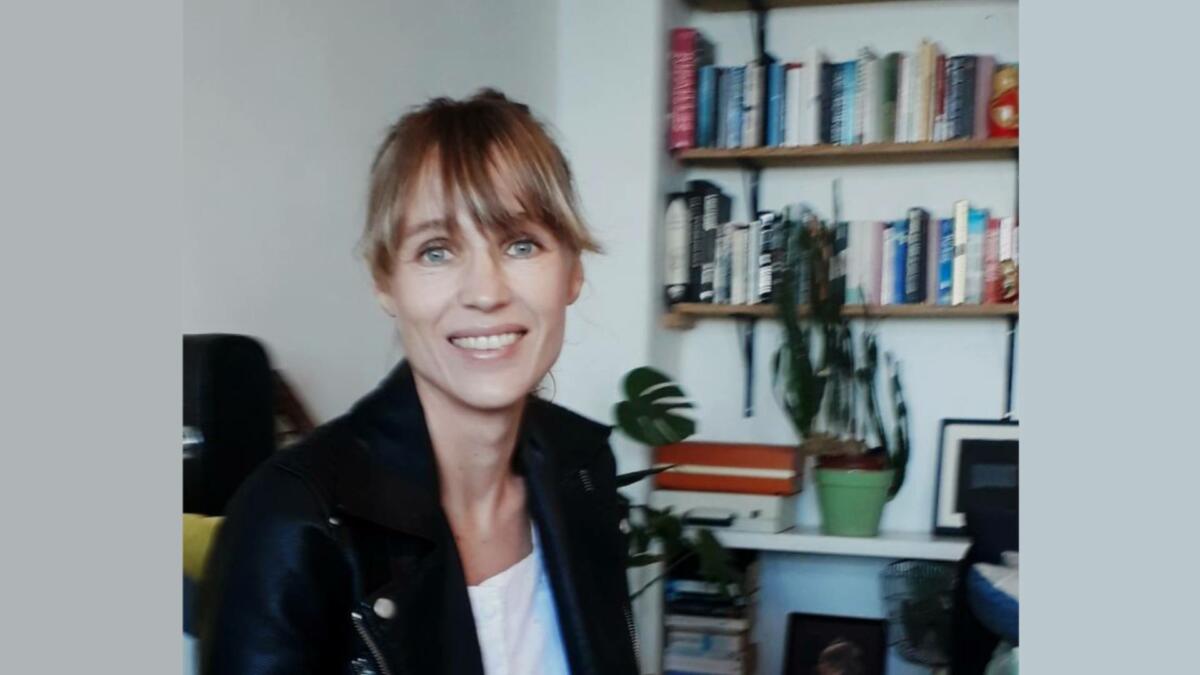Nina Liebenberg: Studying objects creates connections across different areas of research
Postdoctoral researcher Nina Liebenberg hosts KuvA Research Days, Day 3: Object Studies

Who are you, Nina? What are you currently researching at the Academy of Fine Arts?
I am a post-doctoral researcher at KuvA from Cape Town, South Africa. Before starting my research in March this year, I spent the last 10 years working at the University of Cape Town’s Centre for Curating the Archive, convening a selection of courses for its curatorial programme. My current research explores plant-human relationships, focusing on plant stress and its escalation due to climate change. Through a series of multi-disciplinary enquiries that engage scholars from diverse fields, the research examines how artmaking and curatorship can mobilise scholarly research in the context of the affective, the material, and the visual, and facilitate the dissemination of research that usually occurs in disciplinary silos, to wider and diverse publics.
What themes does KuvA Research Day 3 discuss?
Fragility; breath; movement and its impediments; illness, and its treatments… The day focuses on human-disease-plant relationships through a series of object studies that speak to this triad in various ways. Many of these objects are drawn from specialised research environments, such as a petri dish grown with a colony of a plant pathogen (Pseudomonas syringae) that affects the ‘breathing’ cells of plants (from a University of Helsinki laboratory), or a stereotactic frame (sourced from the HUS museum) that was used in neurosurgery and the treatment Parkinson’s disease.
These objects enable us to access the research conducted in these fields in a manner that is tactile and visual and, because objects offer affordances that extend beyond their disciplinary framing, allow us to make connections across vastly different areas of research. Central to this day, is the hope that through the curation of these objects (and their speakers) the audience will experience a renewed sense of empathy for more-than-human worlds.
How are your own research topics related to these themes?
One of my biggest passions is sticking my head into different university departments (especially ones that have large object collections that are central to their knowledge production) and learn about the research through engaging with the disciplinary materials in a hands-on manner. Curation enables me to explore overlaps and connections between various university departments and become a means to surface occluded narratives that are, at times, overlooked in these departments. Many of these visits are usually interspersed with very basic questions such as: ‘What is that?’, or ‘What does this thing do?’ and directed at the objects that are not ‘central’ to the research questions and methods but act as its supporting architecture.
We all have these blind spots in our research environments and these, for me, are the fertile places where anomalies, poetry, and discrepancies, usually reside. My PhD thesis (2021) took the form of one such object study, and I used it to expose the limitations of insider knowledge and systems of categorisation within the academic departments of the University of Cape Town, and to demonstrate the explanatory, interdisciplinary potential of curatorship and artmaking.
Why is studying human relationships with plants and other animals important for the future? Have we neglected the topic in the past?
The covid-pandemic has highlighted the urgent need to better understand the global impact of human relationships with plants and other animals. Layered and diverse histories of such relationships have brought us to (and unfortunately, past) an environmental tipping point. Equally diverse methodologies are required to stage an untangling of these multiple trajectories and identify pivotal nodes. Multi-disciplinary enquiry along with platforms such as curatorship and artmaking, which enable polyphonic narratives to co-exist, hold much potential. It provides the opportunity for the unexpected and the novel to surface – and makes the invisible, visible.
KuvA Research Days
The Academy of Fine Arts at Uniarts Helsinki (KuvA) Research Days will be held on 12-14 December 2023 in the Academy of Fine Arts building Mylly. During the days the public has an opportunity to participate in discussions about art and research generated by talks and performances by KuvAs Researchers and Doctoral Students as well as guest speakers they have invited.